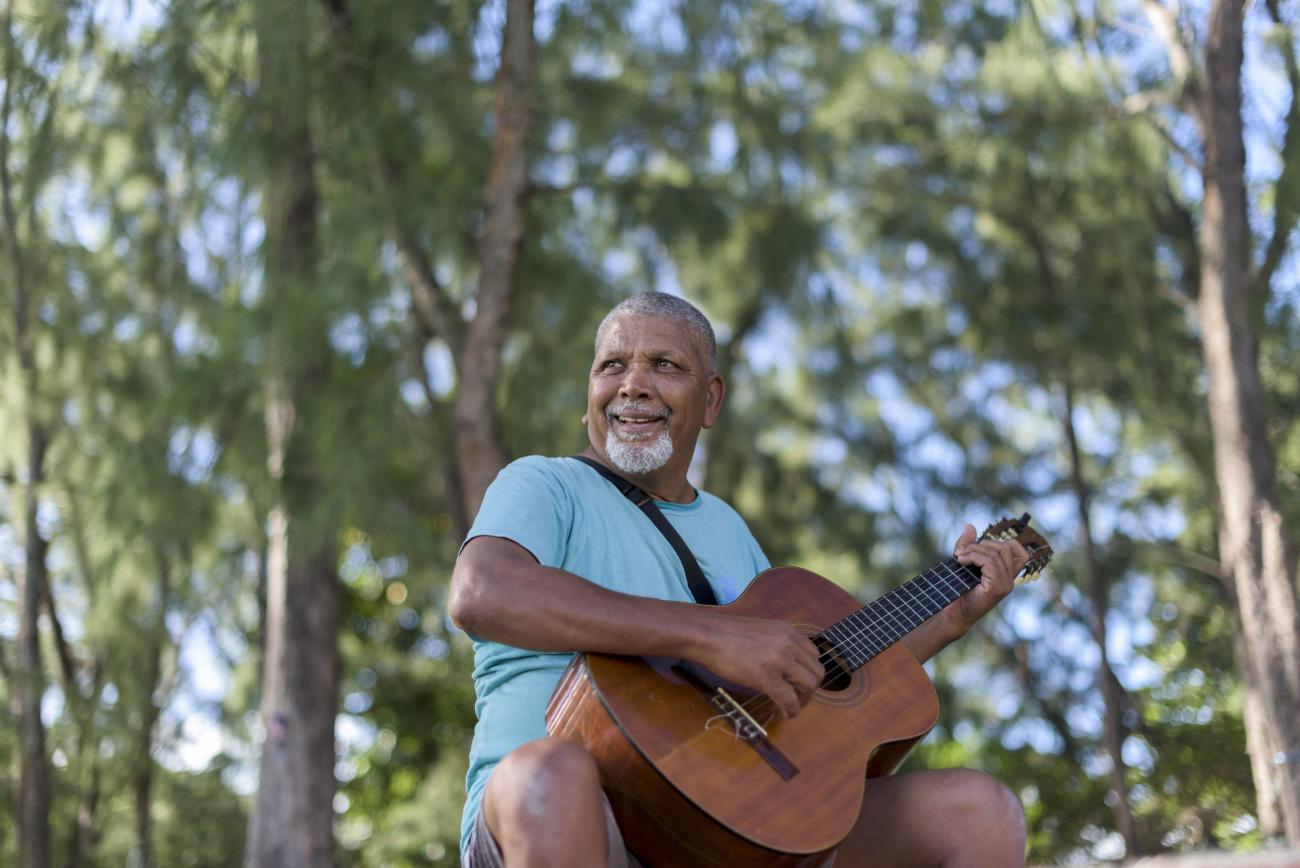The Government of Mauritius, with support from WHO, is improving older people’s health and well-being through a person-centred and primary health care approach to diagnosis, response, and care reaching over 260 000 older people.
Mauritius’s population is ageing rapidly, with nearly 20% of people over the age of 60 in 2021, expected to reach 36% by 2061. Addressing the specific health challenges that older people face is crucially important for achieving universal health coverage.
All older people have access to quality primary health care services for both disease management and to prevent and manage any decline in physical and mental capacities in older age.
The Government of Mauritius is conducting national campaigns, systematic screening, referral to health services, improvement of essential infrastructure, and training of the health and care workforce.
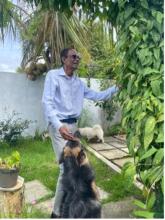
As a senior citizen I have always been very active in all senses of the word. I believe in living life to the fullest. With the introduction of ICOPE screening and the broad range of activities, I feel empowered health-wise and socially to continue living life to the fullest, with regular, comprehensive care assessments and a personalised plan.
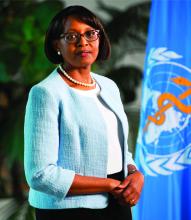
Together, we have a duty to support older people in realising their human rights and living with dignity.
The Government of Mauritius is strongly committed to providing senior Mauritian citizens with holistic, person-centred care, using the proactive approach recommended in the WHO Integrated Care for Older People approach, to optimize autonomy and quality of life throughout the ageing process.
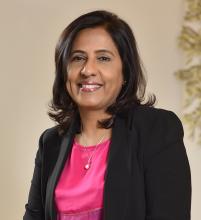
The protection, health and welfare of our seniors is one of our top priorities. Through the ICOPE approach, we are responding to the needs of our older people and enhancing health and social care systems.
WHO is proud to support the Government of Mauritius and other partners to ensure healthy ageing through a person-centred, primary health care approach, as this is undoubtedly the pathway to ensuring universal health coverage.
THE LONG READ
Mr Hanslall Seebaruth lives in Port Louis, Republic of Mauritius, and previously worked in the Judicial Department and Supreme Court. Today, he is proud to be President of the Senior Citizens Council, which represents over 260 000 older Mauritians.
“Us older people in Mauritius know we face physical and mental health challenges as we age. Some common problems are diabetes, high blood pressure, osteoporosis, poor hearing and eyesight, reduced mobility, and dementia. As senior citizens in Mauritius, we feel our health and social care needs are understood and taken care of through a holistic approach.”
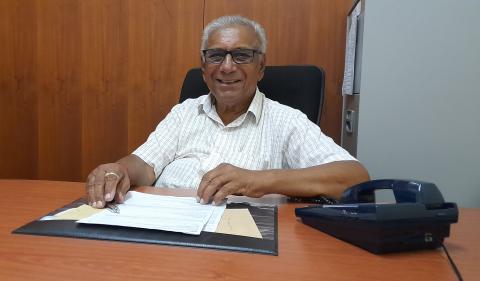
Over the past few decades, Mauritius’ population has aged rapidly. In 2000, 9% of people were aged 60 and above. By 2021, this had more than doubled to 18.7%. In 2061, older people are predicted to comprise 36.5% of the population. This population shift requires the health system to adapt to the needs of older people, particularly to promote well-being, prevent ill health, and ensure early diagnosis and care.
The Government of Mauritius, with technical support and guidance from WHO, aims to better meet the needs of its older population by adopting a holistic and person-centered approach at the primary health care level.
Strategic approaches to improving older people’s health
On 23 March 2023, the Prime Minister of Mauritius, Honourable Pravind Kumar Jugnauth, launched the country’s first National Integrated Care for Older People (ICOPE) Strategic and Action Plan (2023-2026), developed with WHO support, to promote healthy ageing.
“The Government of Mauritius is strongly committed to providing senior Mauritian citizens with holistic, person-centered care, using the proactive approach recommended in the WHO Integrated Care for Older People approach, to optimize autonomy and quality of life throughout the ageing process,” said the Honourable Dr Kailesh Kumar Singh Jagutpal, Minister of Health and Wellness (MOHW), Republic of Mauritius.
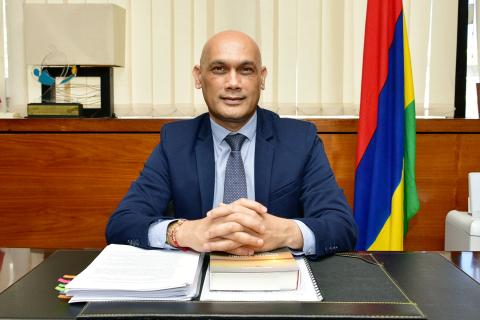
With support from the Universal Health Coverage (UHC) Partnership, WHO provides a technical focal point for ICOPE, in coordination with the Government, to help implement ICOPE. The UHC Partnership operates in over 125 countries, representing over 3 billion people. It is supported and funded by Belgium, Canada, the European Union, France, Germany, Ireland, Luxembourg, Japan, the United Kingdom of Great Britain and Northern Ireland, and WHO.
"The protection, health and welfare of our seniors is one of our top priorities. Through the ICOPE approach, we are responding to the needs of our older people and enhancing health and social care systems,” said the Honourable Fazila Jeewa-Daureeawoo, GCSK, Minister of Social Integration, Social Security and National Solidarity (MSISSNS).
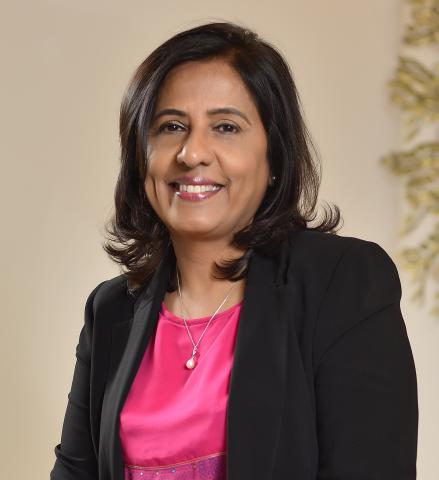
“Together, we have a duty to support older people in realising their human rights and living with dignity,” said Dr Matshidiso Moeti, WHO Regional Director for Africa.
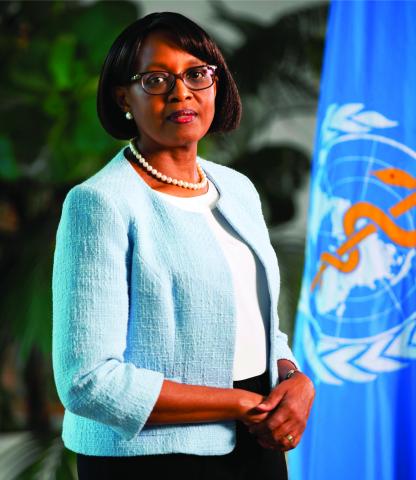
Implementing the plan for older people’s health
The ambitious and far-reaching ICOPE strategic and action plan to deliver integrated care for older people has 7 key objectives, with 55 activities due to take place over the next 3 years, many of which are already underway.
“ICOPE is a multi-stakeholder initiative to address the health and social care challenges of an ageing population. It emphasizes a person-centered approach, focusing on maintaining autonomy through older age, coordination of health and social care, and strengthening the primary health care system around older people’s needs,” said Dr Shiv Seegobin, Director, Medical Unit, MSISSNS, and National Focal Person for ICOPE.
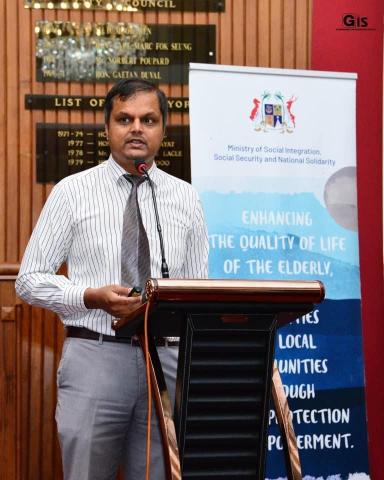
Activities so far include national campaigns and television broadcasts to raise awareness of health issues, systematic and early screening for physical and mental impairments and referrals to services. The aim is to reach all 260 000 older Mauritians, improve essential infrastructure such as 4 new dementia clinics, and train of the health and care workforce.
“Care for older people can often seem daunting because, as people age, their health needs tend to increase and become more complex. The ICOPE recognizes the need for a holistic care by treating more than just physical health but supporting an older person’s emotional, social, and spiritual needs as well,” said Dr Manisha Poorun, Geriatric Healthcare Unit, MOHW.
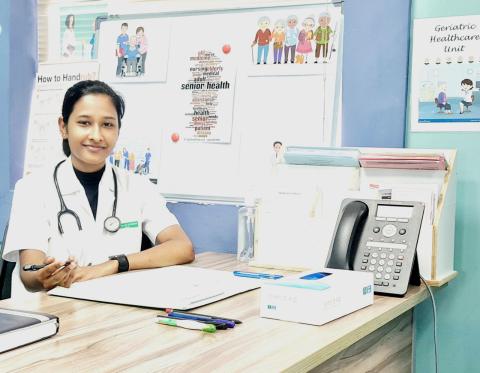
A National ICOPE Steering Committee and Technical ICOPE Committees and Sub-Committees were established to support the adaptation and dissemination of the ICOPE strategy. As a pilot project, 1 000 older people were screened to identify signs of physical and mental decline and referred those in need for timely care, with the ambition to screen the entire older population in the next two years.
“As a senior citizen I have always been very active in all senses of the word. I believe in living life to the fullest. With the introduction of ICOPE screening and the broad range of activities, I feel empowered health-wise and socially to continue living life to the fullest, with regular, comprehensive care assessments and a personalized plan,” said Mr Goundan, local representative of the Senior Citizens Council.
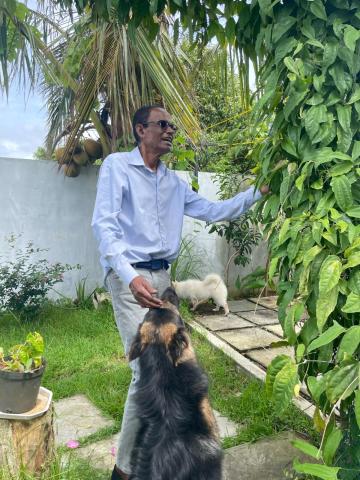
Future activities, among many others, include scaling up ICOPE activities to PHC Centres nationwide, considering updates to laws and regulations against elder abuse and ageism, and plans to update a mobile Smart Health Application.
Training across multiple sectors
The two Ministries, with the support of WHO, have trained over 400 government and non-government professionals on how to implement ICOPE, with some receiving training on becoming ICOPE facilitators. Half of the trainees were doctors, and the other half included nurses, social workers, occupational therapists, physiotherapists, psychologists, and dietitians.
“ICOPE focuses on person-centered care, which is about respecting older people’s preferences, needs, and right to make health decisions and choices. The training of trainers on ICOPE provided us with the skills to deliver the WHO-recommended pathways for timely screening of physical and mental decline in older persons, and providing personalized care plan, in doing so promote healthy ageing,” said Dr Harsha Ramhith, Geriatric Healthcare Unit, MOHW.
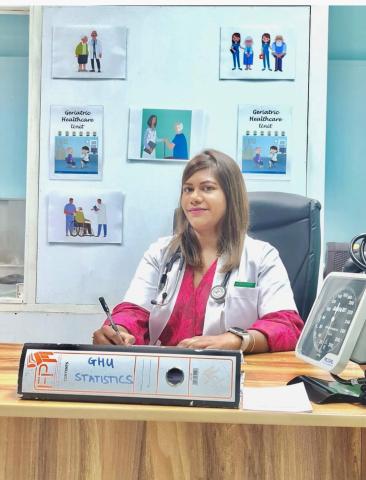
Various other institutions were engaged in the dissemination of ICOPE, including the University of Mauritius, the Central School of Nursing, the Senior Citizens Council, the Alzheimer’s and Dementia Association of Mauritius, and the Association of Retired Workers from the civil service called Le Flamboyant.
Looking to the future
WHO will continue to work alongside all key ministries and partners in Mauritius to facilitate the implementation of ICOPE to strengthen Mauritius’ health system for timely, quality, and integrated care for older people.
“WHO is proud to support the Government of Mauritius and other partners to ensure healthy ageing through a person-centered, primary health care approach, as this is undoubtedly the pathway to ensuring universal health coverage,” said Dr Anne Ancia, WHO Representative to Mauritius.
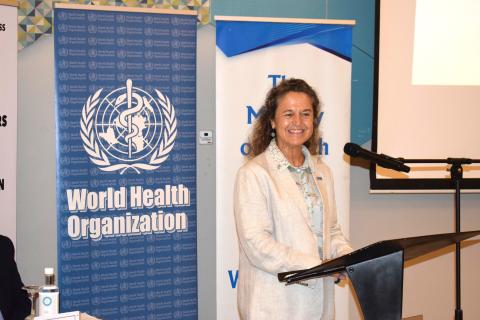
Strengthening health security and preparedness
Mauritius has demonstrated its commitment to improving integrated care by strengthening the health security through participation in the 2018 Joint External Evaluation (JEE), State Party Annual Reporting and Intra-action review for Covid-19.
Furthermore, Mauritius has shown its dedication to strengthening health security by conducting Simulation Exercises (SimEx) in both 2020 and 2021. These simulations serve to develop, assess, and test the functional capabilities of emergency systems, procedures, and mechanisms, thereby improving the country's ability to respond to outbreaks or public health emergencies.
Using insights gleaned from these exercises and assessments, the country developed a comprehensive National Action Plan for Health Security (NAPHS) in 2023. The NAPHS is being implemented as follows: the integrated disease surveillance and the response has been upscaled with a goal to reach 100% coverage by end of 2024; the progress towards the establishment of a functional Public Health Emergency Operating Centre to standardize coordination and response has been accelerated; and capacities have been built on the International Health Regulations (2005).
To learn more visit WHO’s Strategic Partnership for Health Security and Emergency Preparedness (SPH) Portal.
